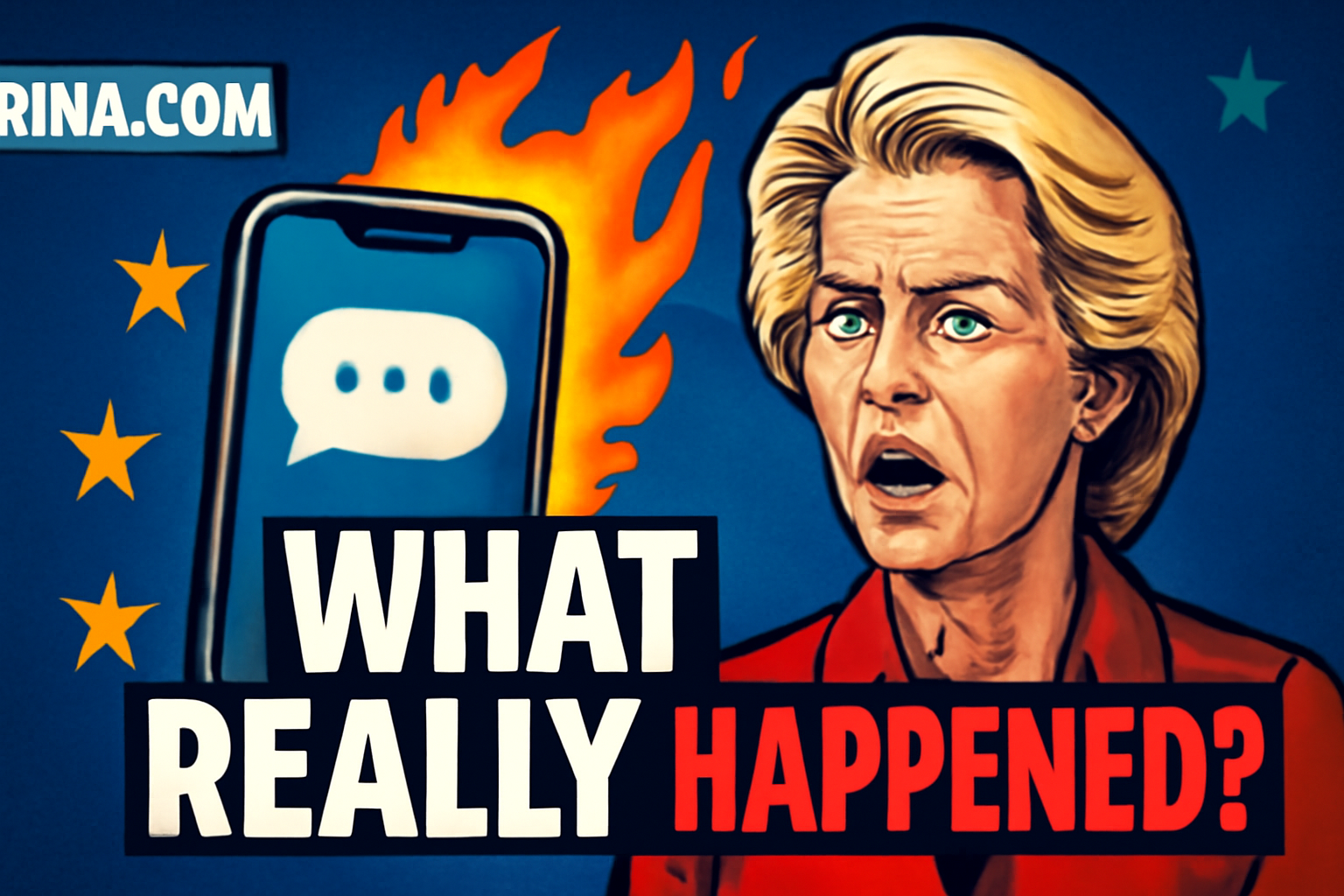Brussels on Fire: Von der Leyen and the Pfizer Scandal Shaking Europe!
Did European Commission President Ursula von der Leyen hide the truth about vaccine procurement? Secret SMS messages with Pfizer’s CEO, which the European Commission stubbornly refused to release, are now at the heart of a blazing scandal that has set Brussels on fire and caused a political earthquake at the core of the EU.
Secret Messages That Enraged Europe
Journalists from the New York Times revealed that during the coronavirus pandemic, von der Leyen exchanged SMS messages with Albert Bourla, then CEO of Pfizer. These messages allegedly arranged vaccine deliveries outside all official EU procedures. The European Commission refused to publish these messages, claiming they were too boring, but the EU General Court ruled that the refusal to disclose them violated principles of good administration.
Political Earthquake in the European Parliament
The motion of no confidence against von der Leyen was initiated by Romanian MEP Gheorghe Piperea, and the vote took place in the European Parliament. 293 MEPs voted against the Commission President, 265 voted in favor, and 18 abstained. Although the motion did not pass, the result is a clear signal of dissatisfaction and doubts about transparency and accountability of the EU’s most powerful woman.
Von der Leyen’s Defense: “Cooperation Was Necessary”
The Commission President spoke publicly about the scandal for the first time, defending her actions. She emphasized that during the crisis, cooperation with vaccine manufacturers and consulting the best experts was necessary. She claimed that allegations of inappropriate contracts were false and that everything was done in Europe’s interest.
Transparency or Political Game?
Transparency activists and right-wing political groups claim that the Commission, led by von der Leyen, does not hold itself accountable to the public and that non-transparency has become the rule. The refusal to publish the messages only fueled suspicions and led to demands for greater accountability.
Croatian MEPs and the Confidence Vote
Among Croatian MEPs, only one voted against von der Leyen, while the rest supported the Commission President. The vote revealed divisions in Parliament and showed that the no-confidence initiative mainly came from right-wing and populist groups.
What’s Next?
This scandal opens Pandora’s box for von der Leyen and the European Commission. Will pressure for greater transparency continue? Will there be new confidence votes? One thing is certain – Brussels is shaken, and trust in EU institutions is at stake.
Conclusion
Von der Leyen survived the confidence vote but with significantly reduced support. The secret messages with Pfizer and the refusal to disclose them cast a shadow over her leadership and the Commission’s transparency. Is this just the beginning of a political earthquake in the EU, or will it all be quickly forgotten? Stay tuned, and hey, if you have a hot take or a good joke about this scandal, drop it in the comments. Let Brussels burn with debate!
Sources: Blic, Index.hr, Tanjug











